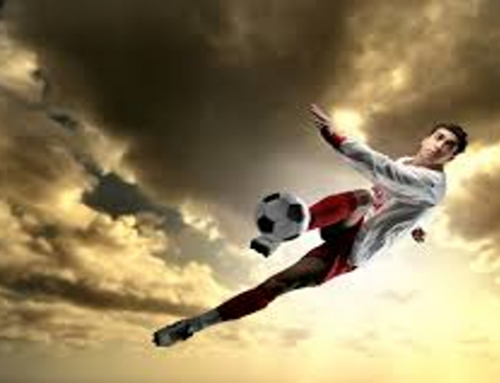The England Under 20 team has just won the Under 20 World Cup. They beat Venezuela in the final one-nil.
Their team is filled with ability – athleticism, ball control, passing, shooting, pace and guile. As individuals they have the capability to play in the Premier League for many years to come. They have the necessary ingredients to play for the senior national side in European Championships and World Cups for the next decade and a half.
Yet, each of them face their toughest tests in the coming weeks, months and years…tests that can’t overcome through physical and technical excellence.
They will be dropped. They will hit a run of poor form. They will be criticised. They will be given contracts that contain mind blowing amounts of money that can de-motivate more than energise. They will be shouted at and booed off. They will be constantly placed under the microscope, with on-pitch performances and off-pitch behaviours minutely analysed by the media, by pundits and by a tough crowd of supporters on Twitter, Facebook and Instagram.
The young players who have just lifted the Under 20 World Cup will need to cultivate the psychological skills that complement the physicality, technical and game intelligence competencies they have acquired during their teenage years. They will need a brand of mental skill that helps them deal with the challenges that await them. They will need optimism, patience and acceptance. They will need trust, commitment and determination. And they will need these in abundance.
Ask a young player about the skills required to be a top professional soccer player and it’s unlikely the words above would be the ones that spring to mind first. First touch, passing, tackling, positional play and speed would probably be the kind of abilities that resonate more with young players with ambition. Yet to be the very best they can be, soccer players require a set of self-management techniques that enable them to overcome the obstacles that lie between them and fulfilling their potential.
If you`re a soccer player start to read all you can on optimism, patience and acceptance. If you’re a coach or parent help your soccer players with their trust, commitment and determination.
If you examine one of the best players in the world right now – Lionel Messi – you`ll find mindset and mental skill in abundance.
In my first book Soccer Tough I wrote about the ‘Messi Mindset’. To my mind Messi is the player he is today because of his ability to see every challenge he faced on and off the pitch in a manner that helped him grow as a person, develop his soccer game and build a robust self-belief.
As a boy Messi was nicknamed “La Pulga” (the flea) because of his height. But it appears Messi cared little about his stature and brushed off suggestions that size would prevent him from playing as a professional in the future. His perception of the situation was helpful, positive and above all confident. Messi refused to let his physicality handicap him. In fact he used it to his advantage. “I am more agile,” he said. “I can learn to play with the ball on the ground better than everyone else.” I believe, despite the fact he was smaller, he felt taller than his teammates. He may have physically looked up on everyone but he chose to mentally look down on his opposition. He cared little for their body shape. He only thought about his soccer, his ability, and how he wanted to play.
Without optimism, patience and acceptance Messi wouldn’t have enjoyed the career he`s had. With a lack of trust, commitment and determination Messi wouldn’t have developed the skills he shows off at the Nou Camp week in, week out.
My advice to every soccer player, coach and parent – put mindset and mental skills on a pedestal. Make them just as important as developing the physical and technical sides of the game. There is always an opportunity in every training session and every match to improve your self-talk, body language, focus, confidence and emotional control.
Have a great week in soccer…




